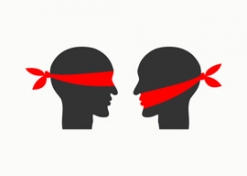
April 27, 2018

Source: Bigstock
Jordan Peterson has published a popular new book, 12 Rules for Life: An Antidote to Chaos, and the man is traveling the world to discuss it. He has even brought his antidote to America, as if our leading philosophers—Bill Kristol, David Frum, and John Podhoretz—were not steering the ship of state aright.
An obscure wretch, contrary as Diogenes in his tub, I should like to offer some maxims for you cynics, for I am a psychologist who is more pessimistic and tragic-minded than Peterson. Consider them an antidote to hope.
Trust should be determined by egoism.
In a world whose fundamental characteristics are need, desire, and pain, it is inevitable that human nature should be incorrigibly self-interested. If, though, people are constrained by need or fear, then they shall probably be compelled to align their interests with yours. As a result, they shall be much less likely to betray or fail you in some other manner. Minus such constraint, they shall be much more likely to come into conflict with you as they endeavor to advance their ever-changing interests. As we read in Hamlet,
What to ourselves in passion we propose,
The passion ending, doth the purpose lose.
…This world is not for aye, nor ’tis not strange
That even our loves should with our fortunes change.
Now in this age of individuals, social relations are extraordinarily difficult and even more treacherous than in the past. The reason is that traditional customs, born of need and fear, have been replaced by individual autonomy. And, given what people are, on average—that is to say, selfish, dishonest, inconstant, and wicked—it follows that to depend on another is an exceedingly dangerous thing, although, of course, we must all do it. We see this danger most of all in the vexed state of marriage, which seems more and more unlikely to survive.
Therefore, while in a world of endlessly variable and unpredictable experience there will be plenty of instances in which it won’t be necessary to do so, it is still a wise maxim, with respect to whether you should trust someone, to ask yourself: Does he need me? Does he, for whatever reason, fear the loss of the value I represent to him? If not, be very careful about extending your trust.
Nor should friends and family be exempt from a measure of prudent distrust. Although these persons are the most important to us, as we learn from Shakespeare and other old masters, it is often they who do us the most harm.
We don’t understand ourselves.
How often does it happen, in looking back on our behavior, that we realize we were in error, though at the time we did not think so? To age is to learn how foolish we were. We reflect on a bad relationship, for example, and with the perspective afforded by time recognize what we did not notice before. In some cases, it seems as though we were not even the same person, and indeed there are philosophically robust arguments for believing just that, although I myself do not.
Ultimately, it is owing to the very nature of the human mind that we do not understand ourselves. I wrote about this nature a little while back in an essay for The Imaginative Conservative:
The mind is essentially functional; its primary purpose is not to arrive at truth, but to enable us to pursue our ends, which are largely practical in nature. We therefore believe things not so much because they are true as because they make us feel a certain way. And though truth is not determined by feeling, human value is. It is true that the earth orbits sun, but the value of that natural fact—so central to human life—is affective, passional, an affair of the heart. And so it is with everything. Reason is very weak compared to the imagination, which is not only more powerful than it, but comprehends the affects besides. It is no wonder, then, that myth and allegory long preceded philosophy and science. And the mind functioning to aid survival and well-being, it is no wonder either that we spend a good deal of time in willful ignorance: getting on in life, our main activity, depends on believing some things rather than others, to which mere truth is subordinated. As Conrad wrote in Victory, “every age is fed on illusions, lest men should renounce life early and the human race come to an end.” In fact, since illusions, lies, errors, and the like are often most effective when it comes to advancing our largely selfish interests, it is merely fitting that throughout much of life we know neither ourselves nor others, all while misperceiving experience (often deliberately) to that end.
We don’t understand other people.
In The Principles of Psychology , William James makes this striking remark about the self and other people: “He is for me a mere part of the world; for him it is I who am the mere part. Each of us dichotomizes the Kosmos in a different place.” Selfhood—with its inexhaustible particularity—is the source of all perception, thought, belief, knowledge, and value. Now this renders fraught, in an epistemic sense, our relations with other people, who, like us, perceive only from their own point of view, that is to say, from their own subjective experience, from the self in the deepest sense. And human experience varying a great deal from person to person and culture to culture, it naturally happens that we spend much of life failing to understand other people, even though we are frequently unaware of that ignorance.